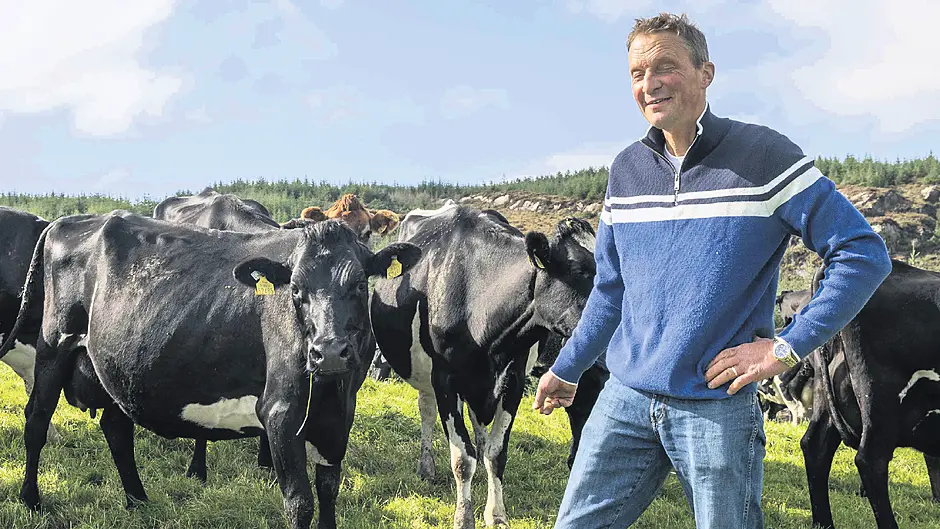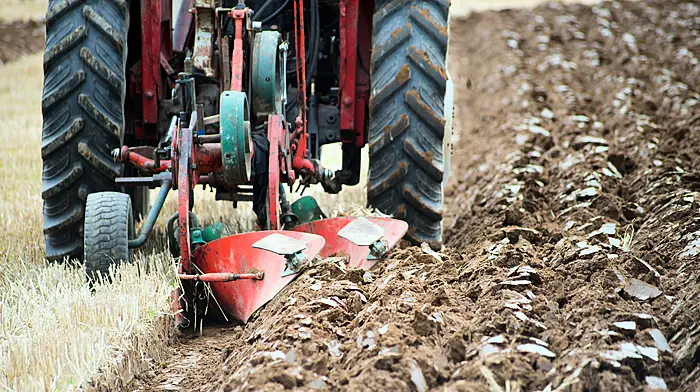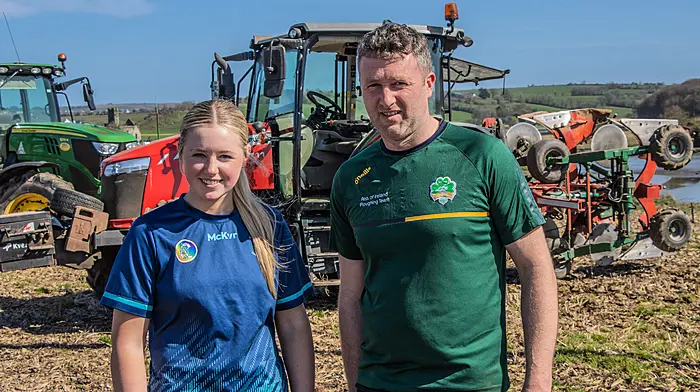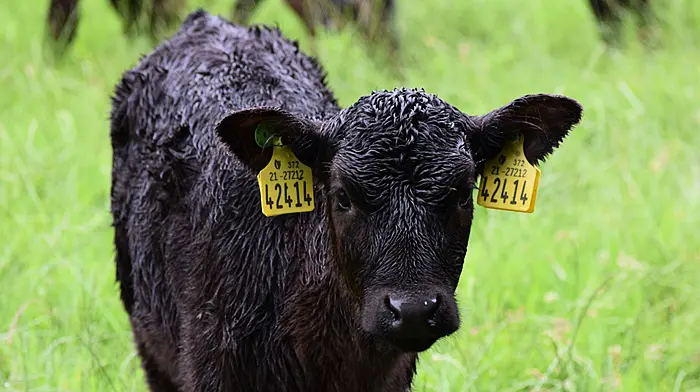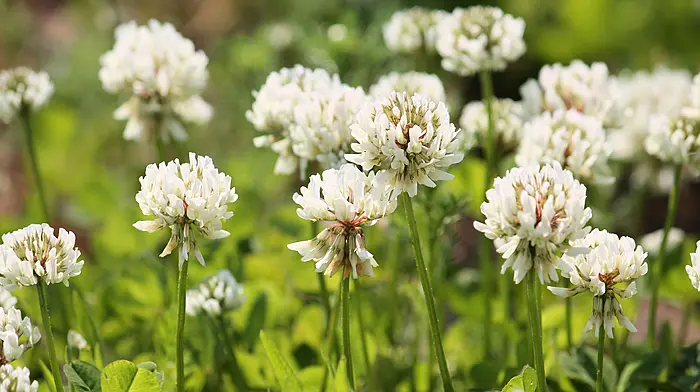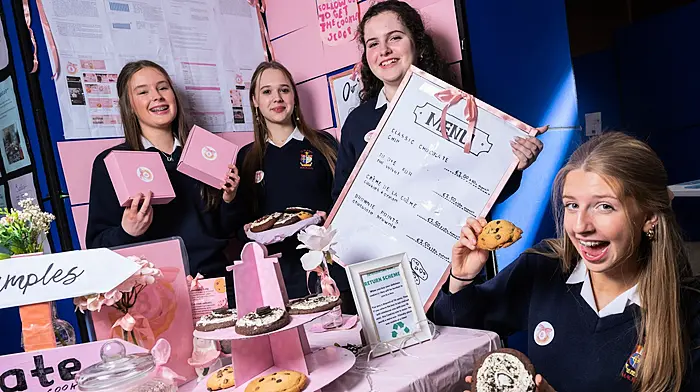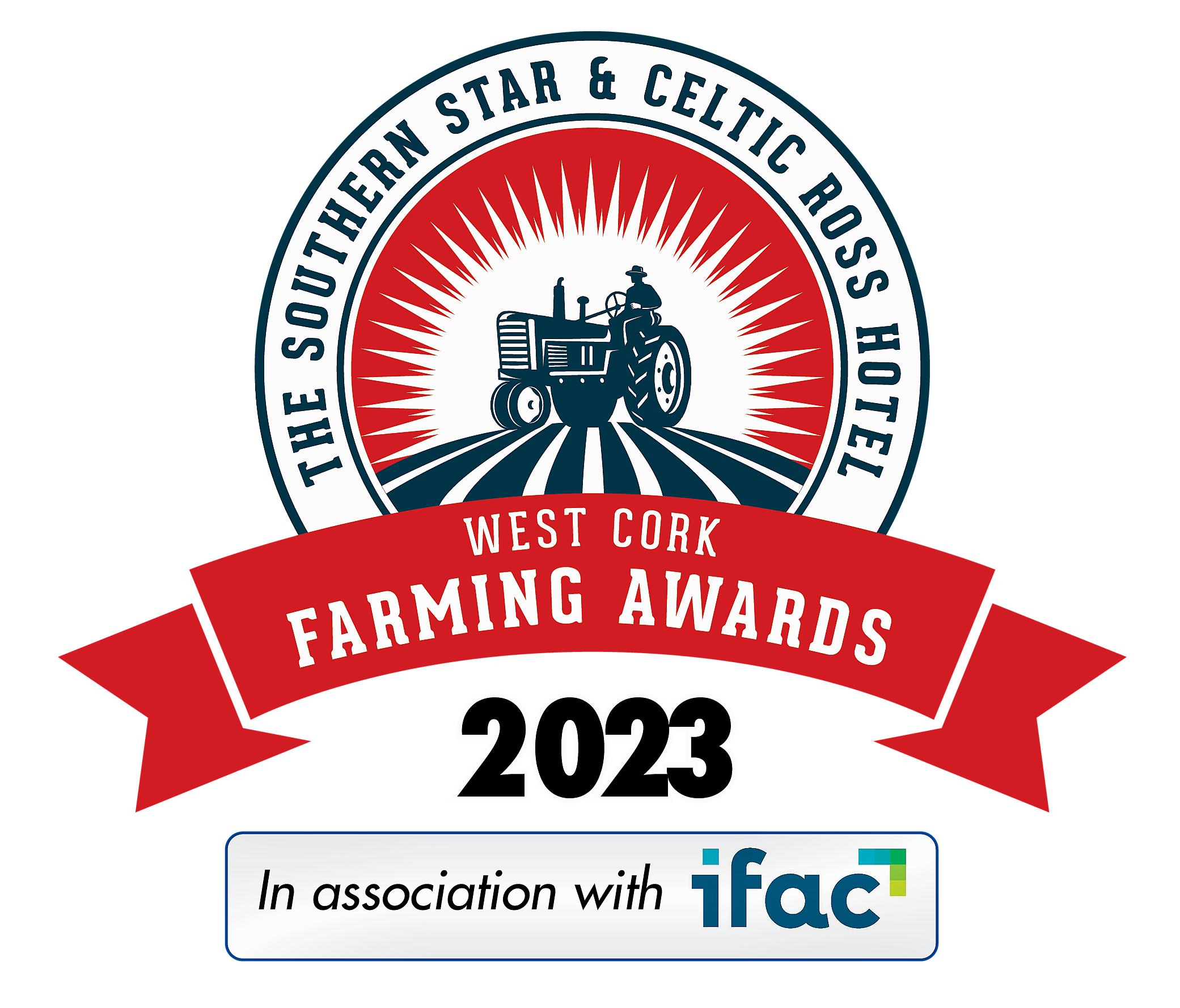
IAN Kingston never wanted to do anything but farm, and despite all the challenges currently facing the sector, he sees a positive future for the industry.
He farms at Sillertane, Dunmanway on a farm bought by his grandfather Harry in 1911.
‘It was passed to my father in the 1960s, and I started working there full-time after finishing my green cert in 1987. It was gradual transition that saw me take over in the late 90s,’ said Ian.
The focus of all three men, and indeed their families, has been on continuous improvement for future generations. As it’s a hill farm, a lot of that emphasis was, and still is, on land reclamation and improvement, along with land acquisition and the development of farm infrastructure.
Ian describes his parents, Richard and Kathleen as very progressive in their approach to farming. ‘Until recently, my father who is in his early 90s, was very involved on the farm, and he can still be seen fixing a stone wall or pulling a furze bush. My mother, who would have been very hands-on in the past in doing the daily milking, also still helps out,’ he said.
‘My own particular focus has been on growing cow numbers and grass to match that. Since I’ve been involved we’ve doubled our land, and trebled our herd,’ said the Drinagh Co-op supplier.
Currently he has a milking platform of 83ha, and total land of 97ha. At peak production this year, he milked 187 cows.
He’s no stranger to winning awards and he was the overall winner of the 2022 Carbery Milk Quality and Sustainability Awards. That was based on his 2021 figures, which saw him produce an average of 430kg of milk solids per cow.
In 2022 he did even better: producing 455kg milk solids per cow, with 4.6% butter milk fat, and 3.75% protein. The figures speak for themselves, but Ian insists that milk quality isn’t something he’s consciously striving to improve. It’s more a by-product of his excellent farming practices.
‘I pay attention to my cows and their health, and I pay attention to my milking machine, more out of a hassle-free approach. These combined give me the quality milk.’
Fertility is also something Ian pays attention to – he does his own AI – and he has an EBI (economic breeding index) of €229.
‘The past few years I’ve used sexed semen for my replacements, and moved on to using high DBI beef bulls,’ he added.
He started out with a Friesian herd, but for the past two decades, he’s crossbred with Jersey and Norwegian Red to boost health and fertility.
It's a spring calving herd, February to April, designed to get the cows out to grass after calving to reduce demand for inputs.
‘Our cows are usually dry by December 10th, and start calving on the last days of January. The beauty of that is that we have around five or six weeks when we are not milking so it’s a welcome chance to take a bit of a breather before things crank up again on the farm,’ he says.
 Ian Kingston with his wife Marie, son Dylan and daughter Emma on his farm in Dunmanway, West Cork. (Photo: Andy Gibson)
Ian Kingston with his wife Marie, son Dylan and daughter Emma on his farm in Dunmanway, West Cork. (Photo: Andy Gibson)
Work-life balance is important to Ian and his wife Marie. They’re parents to Dylan (15), in Junior Cert, and Emma (13) in first year. Marie, a former chef, helps on the farm, and while Ian says they’re mainly ‘home birds’, the couple enjoy an evening of céilí and set dancing on occasion. In fact, that’s how the couple met – at a céilí in Carrigaline!
Regarding the recent reduction in nitrates levels for some farmers operating at the 250 level, he feels it’s a shame that science hasn’t been given a chance to prove itself in the area of water quality. Farming at around the 190 level, he hasn’t been impacted himself, but is acutely aware of how it will hit others.
‘The Minister for Agriculture appears to have no power at the negotiating table in Europe,’ he said.
‘The contribution that derogation farmers make to our co-ops, Carbery and all of West Cork’s economy shouldn’t be underestimated,’ he said.
‘Farmers individually, and also Carbery, invested heavily to increase productions. Things are improving and will continue to do so, but we just need more time,’ he said.
However, Ian implored all farmers to comply with the regulations demanded of them: ‘Otherwise the hit locally, and indeed nationally will be massive. It’s imperative that no one shirks their responsibility when it comes to water quality.’
Once regulations for the sector ‘make sense and are founded on science’, he said he’s got no problem implementing changes.
‘But it can’t be all for nothing,’ he added.
Winning the monthly Southern Star Farming Award, he said, is welcome validation for the work he’s doing.
‘I’m not one to seek the limelight at all, but still and all it’s nice to be recognised,’ he said. Winning the 2022 Carbery Milk Quality and Sustainability Award, also put him in the running for a prestigious NDC Quality Milk Award, which will be announced in November.
Going forward, he said, he remains ‘terribly positive’ for agriculture, and he wouldn’t discourage his son from coming on board, if that was what he wanted to do.
There are challenges ahead without a doubt, he said, but there are also opportunities.
‘We have a growing world population. Many of them may never eat dairy or food from an animal, but many will continue to do so. We have a wonderful opportunity in Ireland with our clean grass-based production system, and if we can sustain that, and continue to improve in the areas that are needed, and tell the positive story of what we do, I’m optimistic. Our food has to come from some place, and there’s nowhere that does that better than Ireland.’
Despite his accolades, Ian keeps a close eye on latest learnings in the sector and has always been open to new ways of doing things. He was one of the first Monitor Farmers (a Carbery/Teagasc joint program supporting farmers) in 1997. He’s part of two discussion groups and also participated in fertility and other trials in Moore Park. Ian has also done a term on the board of Drinagh Co-op, and was part of the innovative Carbery Greener Dairy Farmers group and completed the Diploma in Environmental Science with UCC, along with a group of around 40 other Carbery farmers who have been involved in the past few years. Ian, in his early 50s, says convincingly that he’s as passionate about farming now, as he was when he started out.
‘When I was in school, I remember teachers trying to convince me to go to college, and study accountancy, but it wasn’t for me. ‘I’ve always loved animals, and the land and where I lived, it’s just who I am.’
Why we support West Cork Farming
 John Fitzgerald of Bank of Ireland.
John Fitzgerald of Bank of Ireland.
BANK of Ireland is delighted to sponsor the October winner of the West Cork Farming Awards.
October’s winner is Ian Kingston, who’s family farm in Dunmanway is a shining example of a highly efficient dairy farmer combining sustainable milk production with diligent cost management. The hard work that Ian and his family carry out on their farm is inspiring, recognized not only by October’s West Cork Farming award but by the fact that Ian is also the reigning Carbery Milk Supplier of the year.
Agriculture is a key part of Bank of Ireland’s business, and our commitment to the agri community of West Cork has never been stronger. We are here to support farming families and rural communities across this region, given the agri sector’s pivotal role in powering local economies.
Cost management is to the fore of farmers thinking currently, given that many in the industry are facing having to pay larger tax bills this November, impacting cash flows as a result of weaker farm gate prices and input costs remaining high.
Bank of Ireland is encouraging farmers across West Cork to engage with their financial advisers to discuss their options, such as our dedicated tax loans, or to call in to one of our branches in Bandon, Clonakilty, Kinsale, and Skibbereen.
John Fitzgerald, agri development manager, Bank of Ireland added: ‘Farming is a business that continues to evolve, with farmers used to the changing nature of their business and continuously introducing newer and more efficient practices. Bank of Ireland recognizes that West Cork farming continues to change and improve, and we will continue to develop and improve our products to support farmer’s needs. We know that West Cork farmers are resilient and will also evolve, and we remain very comfortable with the sector and determined to support our customers through the current challenges and with future opportunities.’
If you would like to suggest someone to be considered for a monthly farming award, please contact us by email on [email protected] or call 028 21200.
Monthly award winners could be a farmer, someone working in agri-business, agri-entrepreneurship, a farming organisation or even someone involved in education or research and development. The awards panel is looking for examples of great work, innovation and overall contribution to West Cork farming and agricultural life.

